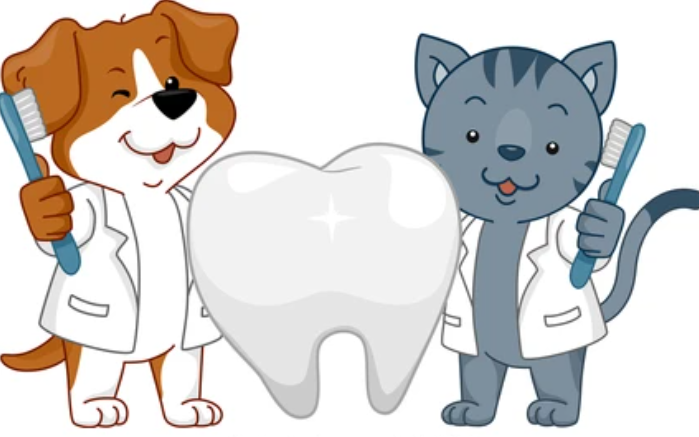There are several common dental problems that pets can experience, including:
Periodontal disease:
This is a bacterial infection of the gums and bone that support the teeth. It is caused by the buildup of plaque and tartar on the teeth and can lead to tooth loss and other health problems if left untreated.
Broken or fractured teeth:
Pets can break or fracture their teeth due to accidents or chewing on hard objects. Broken teeth can be painful and may require extraction or other dental procedures.
Tooth decay:
Just like humans, pets can experience tooth decay, which is caused by the buildup of bacteria and acids on the teeth. This can lead to cavities, infection, and other dental problems.
Gingivitis:
This is an inflammation of the gums that is caused by the buildup of plaque and tartar on the teeth. It can lead to bleeding, pain, and discomfort for your pet.
Oral tumors:
These are abnormal growths in the mouth that can be benign or cancerous. They can cause pain, bleeding, and difficulty eating or drinking.
If you suspect that your pet is experiencing any of these dental problems, it is important to take them to a veterinarian as soon as possible for evaluation and treatment. Regular dental check-ups and proper oral hygiene can help to prevent these problems from developing in the first place.
FAQs
Here are some frequently asked questions related to animal dental care:
-
How often should I have my pet’s teeth cleaned?
It is recommended to have your pet’s teeth cleaned by a veterinarian once a year. However, some pets may require more frequent cleanings depending on their age, breed, and dental health.
-
How can I tell if my pet has dental problems?
Some signs of dental problems in pets include bad breath, swollen or bleeding gums, loose or missing teeth, difficulty eating or chewing, and pawing at the mouth. If you notice any of these signs, it is important to have your pet evaluated by a veterinarian.
-
Is it necessary to brush my pet’s teeth?
Yes, brushing your pet’s teeth is an important part of maintaining their dental health. It helps to remove plaque and prevent the buildup of tartar on the teeth. However, it is important to use pet-friendly toothpaste and to introduce brushing gradually to make it a positive experience for your pet.
-
Can dental problems in pets lead to other health problems?
Yes, dental problems in pets can lead to other health problems if left untreated. For example, bacteria from dental infections can spread to other parts of the body, leading to infections in the heart, liver, or kidneys.
-
What can I do to prevent dental problems in my pet?
You can help to prevent dental problems in your pet by providing them with a balanced diet, avoiding sugary or starchy foods, offering dental-friendly toys and treats, and brushing their teeth regularly. It is also important to have your pet’s teeth checked by a veterinarian on a regular basis.




